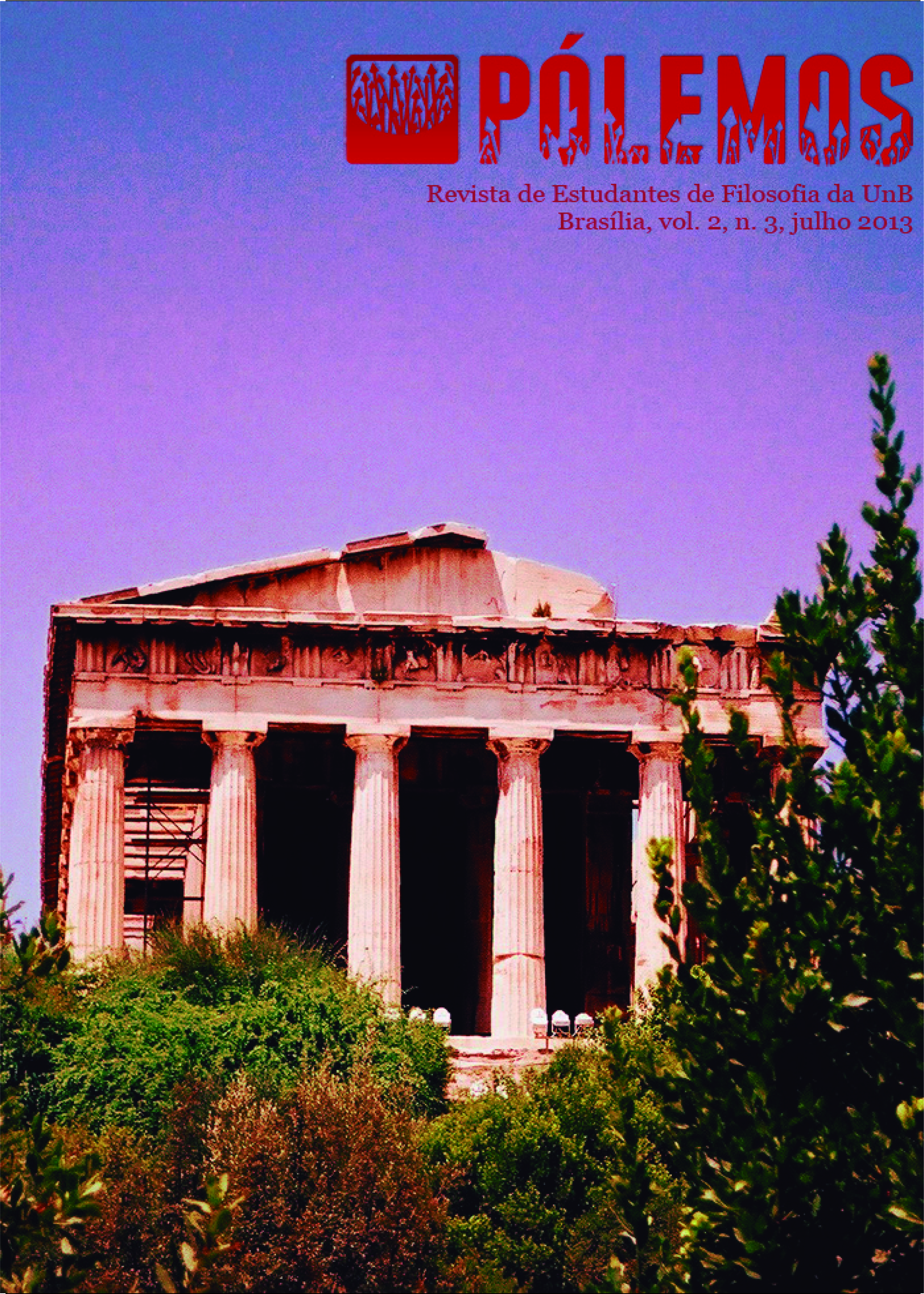HABERMAS AND CRITICISM OF LIBERAL EUGENIC
DOI:
https://doi.org/10.26512/pl.v2i3.11554Keywords:
Habermas. Eugenic. Liberal Eugenic. Bioethics. Theory of Justice.Abstract
It is intended that text, firstly introduce Habermas' arguments against liberal eugenics, more specifically, against positive eugenics. Will be said, also, Habermas' arguments in favor of a Of species' ethic, which allow only one negative eugenics, ie, that for therapeutic purposes without, for that it is necessary to interfere with the genetic structure because of, firstly, interfere with the self individuals as free and equal and, secondly, in the reversibility of such changes. Finally, some critics are enrolled theses habermasians. These authors generally point to a certain Setback from the perspective of the Frankfurt philosopher by trying to recover the idea of human nature.
Downloads
References
AGAR, Nicholas. Liberal Eugenics: In Defence of Human Enhancement. Oxford: Blackwell Publishing, 2004.
CHITTY, Claide. Eugenics, Race and Intelligence in Education.London: Continuum International Publishing, 2009.
DALL'AGNOL, Darlei. Bioética. Rio de Janeiro: Zahar Ed, 2005.
DALL'AGNOL, Darlei. O Passado da Natureza Humana?ethic@, Florianópolis, v.4, n. 3, p.321-326, Dez 2005.
DEVOLDER, Katrien. Cloning. The Stanford Encyclopedia of Philosophy (Summer 2013 Edition), Edward N. Zalta (ed.), URL = http://plato.stanford.edu/archives/sum2013/entries/cloning/, acessado em 12/08/13.
DWORKIN, Ronald. Sovereign Virtue: The Theory and Practice of Equality. Cambridge: Harvard University Press, 2002.
DWORKIN, Ronald. Domínio da Vida. Trad. Jeferson Luiz Camargo. São Paulo: Martins Fontes, 2009.
FELDHAUS, Charles. Habermas, Ética da Espécie e seus Críticos. Princípios, Natal, v. 14, n. 22, jul./dez. 2007, p. 93-122.
FELDHAUS, Charles. A Eugenia Liberal e o Futuro das Espécies. Filosofia, Ciência e Vida, São Paulo, Ano II, nº 21, 2008, p. 56-63.
FELDHAUS, Charles. O Futuro da Natureza Humana de Jürgen Habermas: Um comentário. ethic@, Florianópolis, v.4, n. 3, p.309-319, Dez 2005.
FELIPE, Sônia T. Equívocos da Crítica Habermasiana à Eugenia Liberal. ethic@, Florianópolis, v.4, n. 3, p.339-359, Dez 2005.
GALTON, Francis. Hereditary Talent and Genius. Apud: GOLDIM, José Roberto. Eugenia. In: http://www.ufrgs.br/bioetica/eugenia.htm, acessado em 05/06/2010.
GUEST, Stephen. Ronald Dworkin. Rio de Janeiro: Elsevier, 2010.
HABERMAS, J. O Futuro da Natureza Humana. A caminho de uma eugenia liberal?. Trad. Karina Jannini. São Paulo: Martins Fontes, 2004.
HONNEFELDER, Ludger. Bioethics and the Normative Concept of Human Selfhood. In: DÜWELL, M.; REHMANN-SUTTER, C.; e MIETH, D. (Orgs.) The Contingent Nature of Life – Bioethics and Limits of Human Existence. Dordrecht: Springer, 2008.
KERSTING, W. Liberdade e Liberalismo. Trad. Luís Marcos Sander. Porto Alegre: EDIPUCRS, 2005.
KEVLES, Daniel. Eugenics. In: POST, Stephen G. (Org.) Encyclopedia of Bioethics. 3ª ed. New York: MacMillan, 2003.
MAMELI, Mateo. Reproductive Cloning, Genetic Enginnering and the Autonomy of the Child: the Moral Agent and the open Future. Journal of Medical Ethics, 33, 2007, p. 87-93.Disponível em: http://www.ncbi.nlm.nih.gov/pmc/articles/PMC2598241/, acessado em 10/08/13.
PEGORARO, Olinto A. Ética dos Maiores Mestres da História. Petrópolis, RJ: Vozes, 2006.
PLATÃO. A República. Trad. Maria Helena da Rocha Pereira. 9ª ed. Fundação Lisboa: Calouste Gulbenkian, 2001.
SANDEL, Michel. J. The Case Against Perfection. Ethics in the Age of Genetic Engineering. Cambridge, MA: The Belknap Press of Harvard University Press, 2007.
VOLPATO DUTRA, Delamar J. Razão e Consenso em Habermas. 2ª ed. Florianópolis: Editora da UFSC, 2005.
VOLPATO DUTRA, Delamar J. Seria a Eugenia Liberal Míope? ethic@, Florianópolis, v.4, n.3, p. 327-337, Dez 2005.
Downloads
Published
How to Cite
Issue
Section
License
Copyright (c) 2016 Pólemos

This work is licensed under a Creative Commons Attribution-NonCommercial-NoDerivatives 4.0 International License.
Todos os trabalhos que forem aceitos para publicação, após o devido processo avaliativo, serão publicados sob uma licença Creative Commons, na modalidade Attribution-NonCommercial-NoDerivatives 4.0 International Public License (CC BY-NC-ND 4.0). Esta licença permite que qualquer pessoa copie e distribua a obra total e derivadas criadas a partir dela, desde que seja dado crédito (atribuição) ao autor / Ã autora / aos autores / às autoras.


